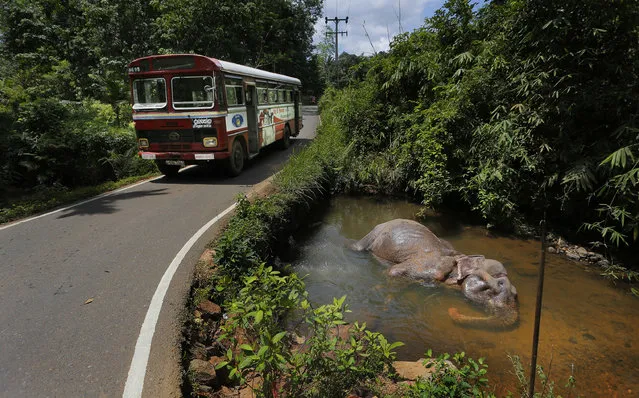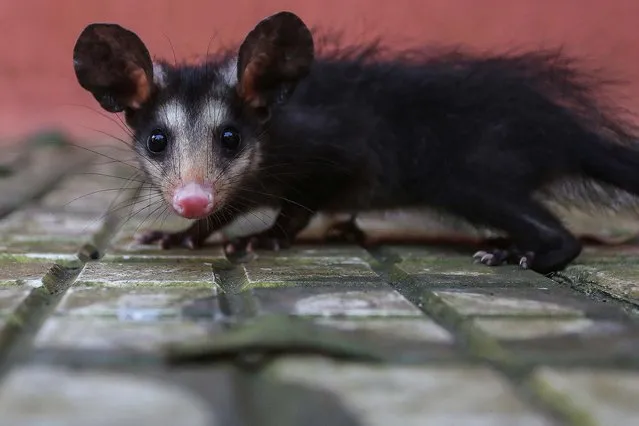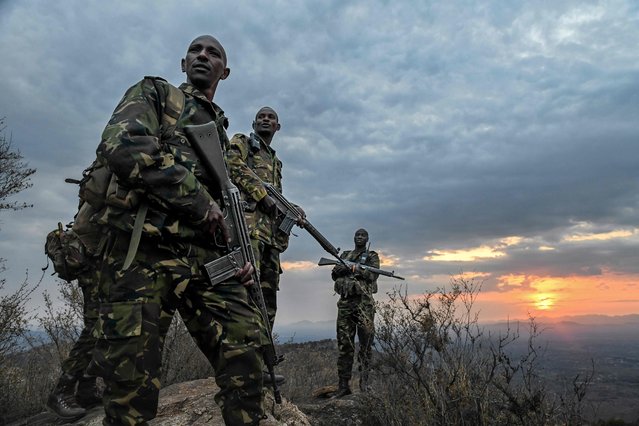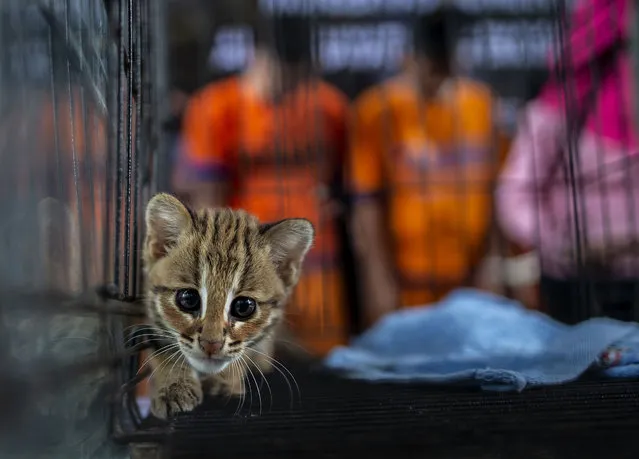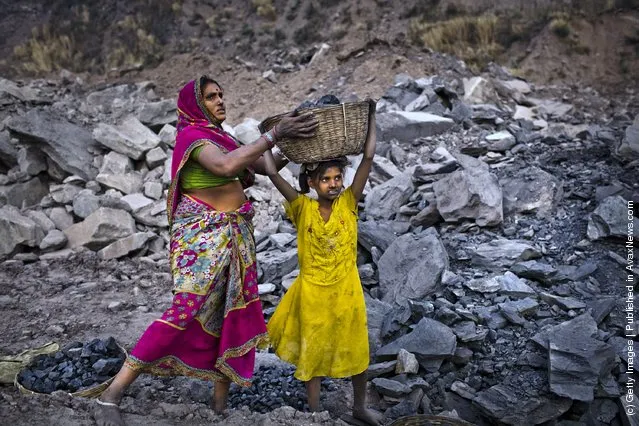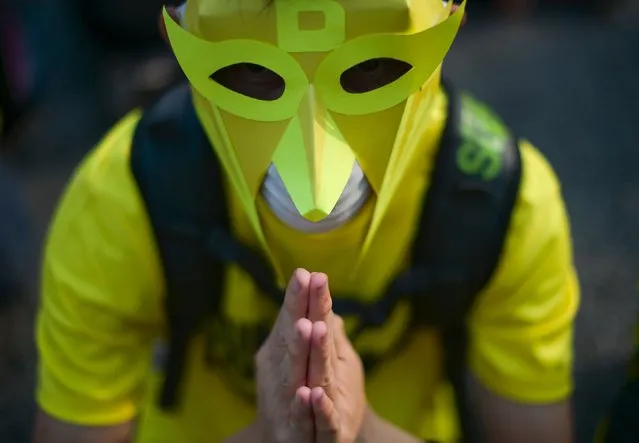
A protestor offers prayers on the second day of a demonstration demanding Prime Minister Najib Razak's resignation and electoral reforms in Kuala Lumpur on August 30, 2015. Tens of thousands of Malaysians swarmed central Kuala Lumpur on August 29, to call for the prime minister's ouster over corruption allegations and demand broader reforms, defying warnings by police who had declared the rally illegal. (Photo by Mohd Rasfan/AFP Photo)
30 Aug 2015 11:22:00,post received
0 comments

